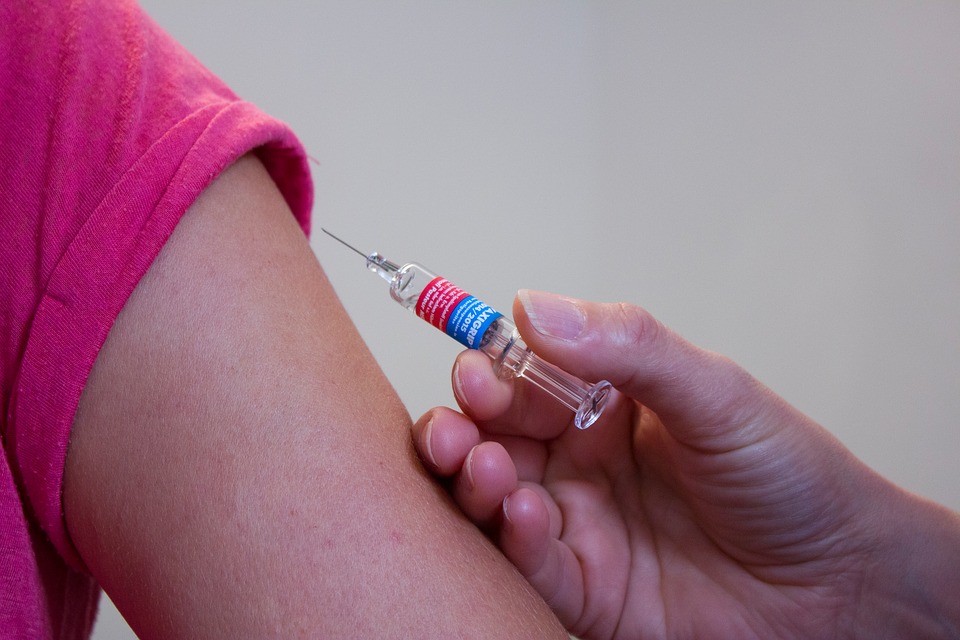Health
Be careful in reporting risks of vaccination: health comms expert

A communication specialist from the World Health Organization (WHO) – Philippines on Friday called on media practitioners to be careful in reporting risks that may be associated with vaccines, saying that vaccinations or immunizations are done to save lives.(Pixabay photo)
MANILA — A communication specialist from the World Health Organization (WHO) – Philippines on Friday called on media practitioners to be careful in reporting risks that may be associated with vaccines, saying that vaccinations or immunizations are done to save lives.
Jun Ryan Orbina, communication officer on the Expanded Programme on Immunization, said there is a need to highlight in news reports the positive effects of vaccination to bring back the trust of people in immunization, which was severely demonized when the Dengvaxia controversy happened.
“We invest in public trust but public trust can be easily destroyed by one shape of event wherein public trust can be mishapened by misinterpretation on vaccination. We’d like to stress that we need more positive angle and attention to immunization, particularly for routine immunization of infants, of children,” Orbina said, speaking at “SalinSiyensiya: Talking Science with Non-Scientist” forum in Quezon City.
He said if public trust in immunization is restored, it would follow that people would be demanding for it.
The role of media, in this case would be vital, as the message that vaccines actually work and are safe to be administered would be delivered to the intended audience and target recipients, Orbina said.
“When we write articles, when we do interviews, this should be on top of our heads — that vaccines work and are safe, and immunization has been an effective way to save lives and to prevent many diseases worldwide, that save lives of two to three million children per year, and it prevents disabilities. It prevents diseases through immunization,” he said.
He pointed out that when reporters discuss about certain risks that can possibly be experience by recipients of vaccines, they should emphasize that such risks can be just so small compared with the benefits that can be derived by an infant who receives the said vaccine.
“The greater angle here is that the risks that are so small but the benefits are very big,” he said.
“For parents, whenever you have your child vaccinated, these are expected of the vaccines. So that’s part of the normal process that’s around 5-10 percent. Those vaccinated could have fever, pain and normal reaction to injection sites. So these are expected and manageable,” he said.
He also reminded media practitioners to be clear on explaining about Adverse Event Following Immunization or AEFI to the public.
“If you use this (AEFI), you need to clarify what does this means- because by the sound of it — adverse event following immunization– will somehow appear to me…is that anything bad happens after vaccination can be attributed to the vaccine. Whereas, this is just a technical term, which means that any untoward medical occurence which follows immunization; it does not necessarily have a causal relationship with the usage of the vaccine,” he said.
The forum organized by the Research Institute for Tropical Medicine (RITM) aims to provide an avenue for technical experts and the media to engage in a dialogue that would address the pressing questions and issues surrounding the clinical trials, vaccination, and immunization.
RITM director Dr. Socorro P. Lupisan said they organized such forums to allay fears of parents and bring back their trust in vaccination to prevent some illnesses from being contracted by their children.
“Kailangan na ibalik ang tiwala ng mga nanay sa public health programs ng Department of Health. Kailangang malinawan ang lahat. Sama-sama tayong magtulungan para maibigay ang kaalaman sa publiko,” (We need to regain the confidence of the mothers on the public health programs of DOH. All should be clear. Let us help one another so that we can bring the knowledge to the public), Lupisan said.






















Siobhan Justin
March 12, 2018 at 9:33 PM
the concern should be whether or not they are telling the truth.